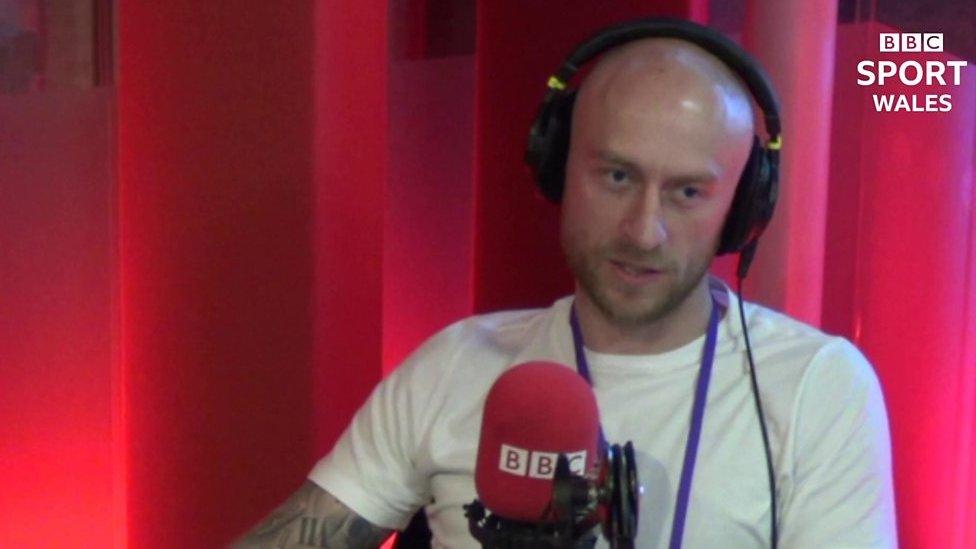World Mental Health Day 2022: 'Football changed our lives'
- Published
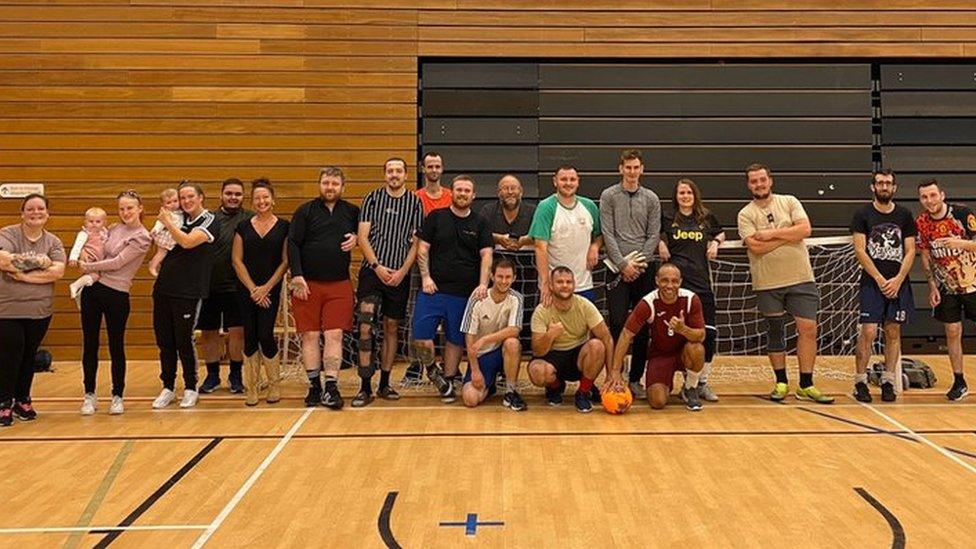
Mental Health Football Wales allows people with experience of mental ill health to develop friendships and support each other
If you want to see another side to the beautiful game, look no further than Mental Health Football Wales.
Played, coached and organised by people with a variety of mental health conditions, MHFW aims to improve participants' wellbeing through sport.
Monday 10 October is World Mental Health Day, and one player said the team "totally changed" his life.
Keri Harris founded MHFW during the coronavirus pandemic, hosting online activities before football was allowed.
He said: "I heard a lot of people say they felt alone and there was no contact with others during the pandemic.
"We felt we needed to do something to help people struggling with their mental health in Wales.
"Football is my big thing, so it felt natural to put them both together."
Keri has his own motivation for starting the sessions.
"From a personal point of view, I've struggled with depression, probably for my whole adult life. It was only a few years ago that I admitted that.
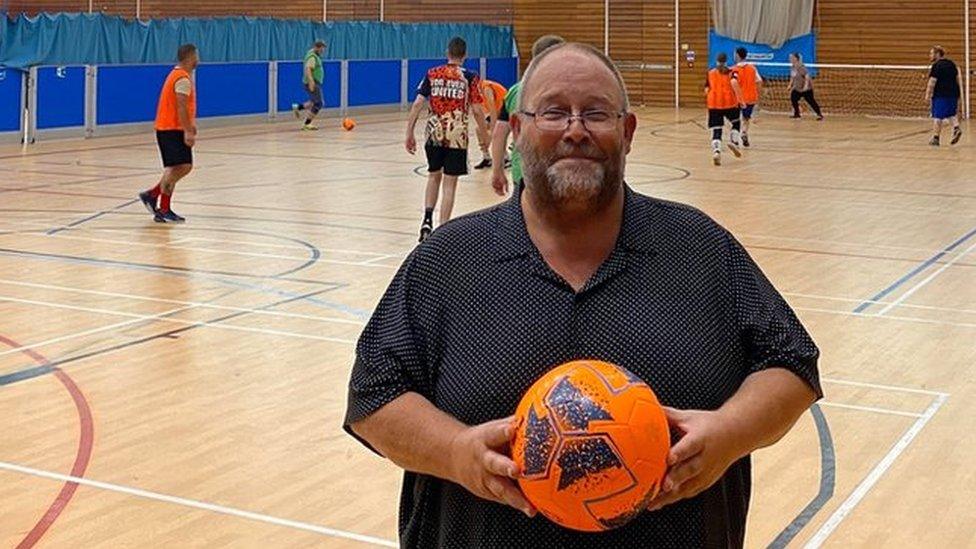
Keri still hosts a clubhouse every week, so that people can sign in and check on each other
"I went to see a GP, started getting some anti-depressants and started feeling better.
"I've seen the impact football can have on peoples' mental health. It's definitely been a positive in my life."
One of the sessions MHFW runs is held weekly in Swansea.
Sian Louise Tambini has been attending for a year and said football is extremely helpful for her mental health.
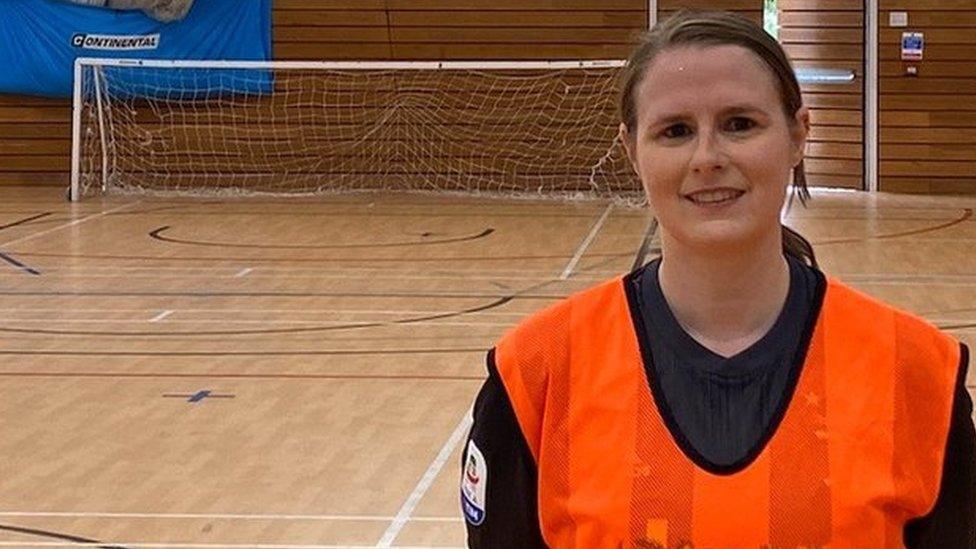
Sian's three-year-old son loves football and asks about his mum's performances every week
The 31-year old said: "I was diagnosed as autistic when I was 25, before that I was diagnosed with obsessive compulsive disorder, external.
"I help with the sessions, and go to the tournaments. We can meet other people who have mental health problems, and who are striving for the same goal.
"MHFW really helps me when I'm feeling anxious because I can come here and exercise and take my mind off anything that's bothering me."
'Great to give something back'
Spencer Williams, who coaches the sessions on a Tuesday night in Swansea, said coaching allows him to help others, and his own mental health.
"If it wasn't for this, I wouldn't be in the situation I am today. I owe it all and it's great to give something back.
"I went through a phase from 16 onwards with crippling anxiety, really terrible mental health. I was in and out of hospital, and I didn't know what was wrong with me.
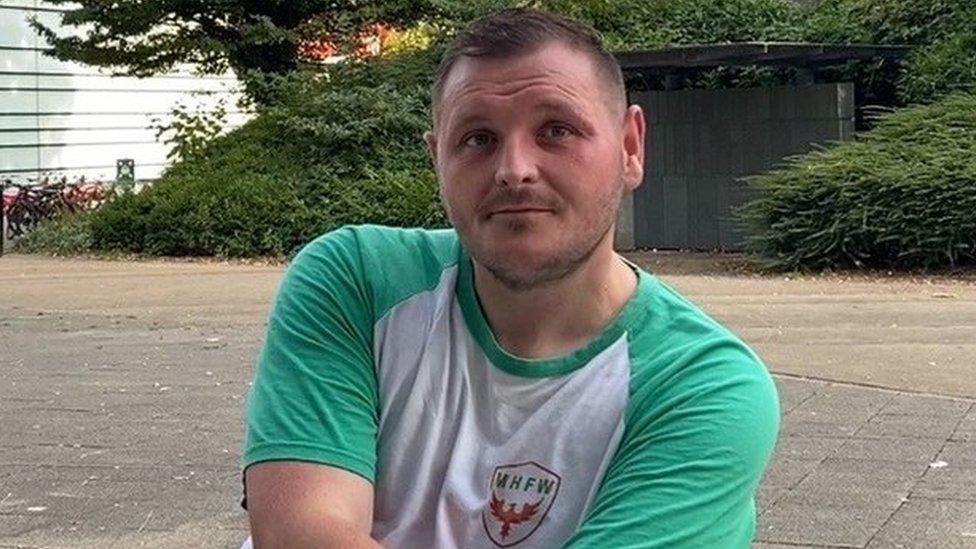
Spencer Williams says MHFW allows him to be himself with 'no pressure'
Spencer said meeting Keri helped him get back on his feet and gave him confidence.
"Back then I didn't think there was any hope for me. Meeting all these guys was the turning point for my mental state.
"Now I've got a family and I'm married. My life has totally changed, 100% being involved in this has changed my life."
Among the players and volunteers, some people had come to watch the session in Swansea, including Serena Alli, 39, who attends with her husband, Carl, 41.
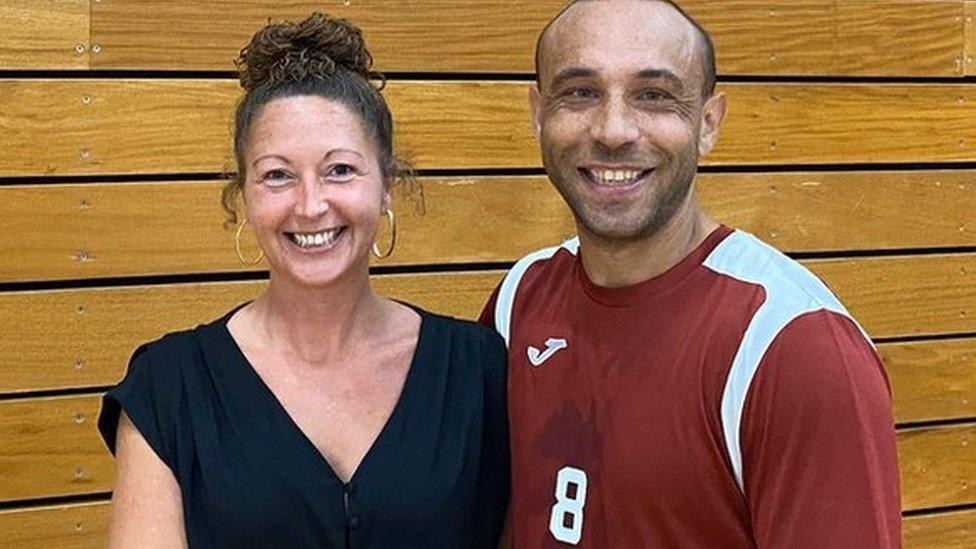
Serena and Carl Alli support each other with their mental health and attend MHFW together
She said: "I've just come from counselling and I've come to watch my husband play football here.
"I come to get out and forget about everything. It helps me get out of the house and focus on other things."
Sisters Anna and Louise Massey also attend the sessions, with their young children. Anna, 23, said: "We got involved in all the Zooms in lockdown and it really built your confidence because you weren't alone.
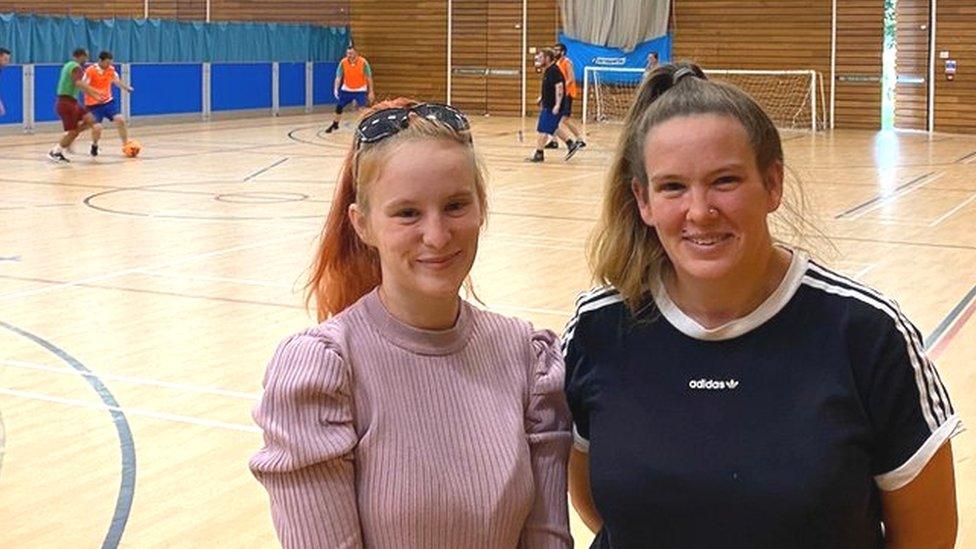
Anna and Louise Massey say Keri always checks up on them on the anniversary of their mother's death
"The first meeting we could do as a group in person, we've been coming ever since.
"I've known Keri for years. He's amazing and like Louise said he knows when something's wrong and he will make sure we're okay."
Her sister, Louise, 33, said: "When we found out Keri was doing mental health football, I jumped at the chance to be involved because I've suffered with mental health myself.
"I suffer with depression and anxiety, so [MHFW] was perfect to get my anger out. Kicking the ball, I forget about all my worries.
"Keri has changed our lives for the better, I don't drink or take drugs any more and we've got babies now.
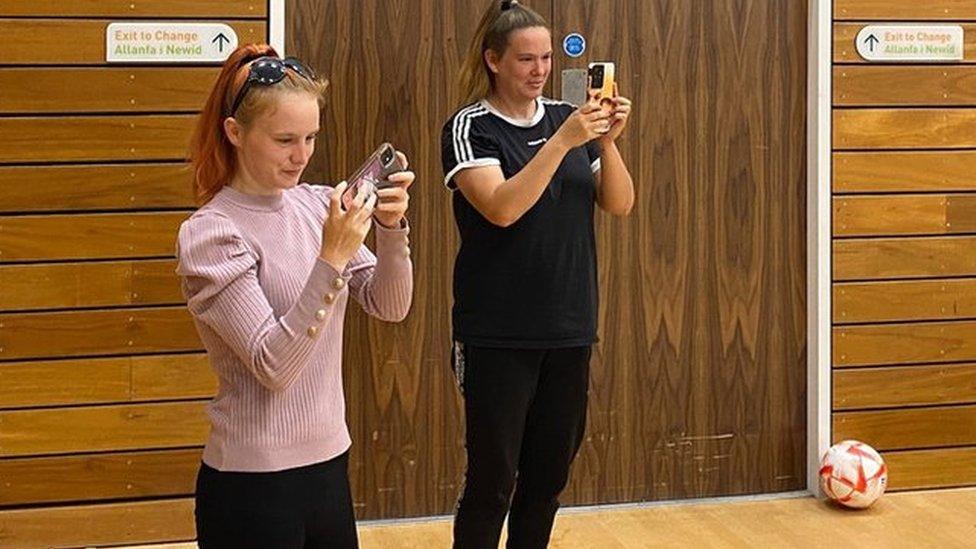
The sisters take photos of the sessions and post them on MHFW's social media accounts
"A couple of years ago, I wouldn't be able to do that. I wouldn't be able to look after a child because I could barely look after myself.
"But now, my kids are always in new clean clothes and always smiling. Keri has been like a dad to us and our children absolutely love him."
Elsewhere, clubs such as Aberystwyth Exiles run mental health teams in their community.
Bonny Jewell, 30, set up the team in Cardiff with her partner, Tim Cann, said: "We've been bonding together, we have a laugh, it's a great way to experience football and make friends.
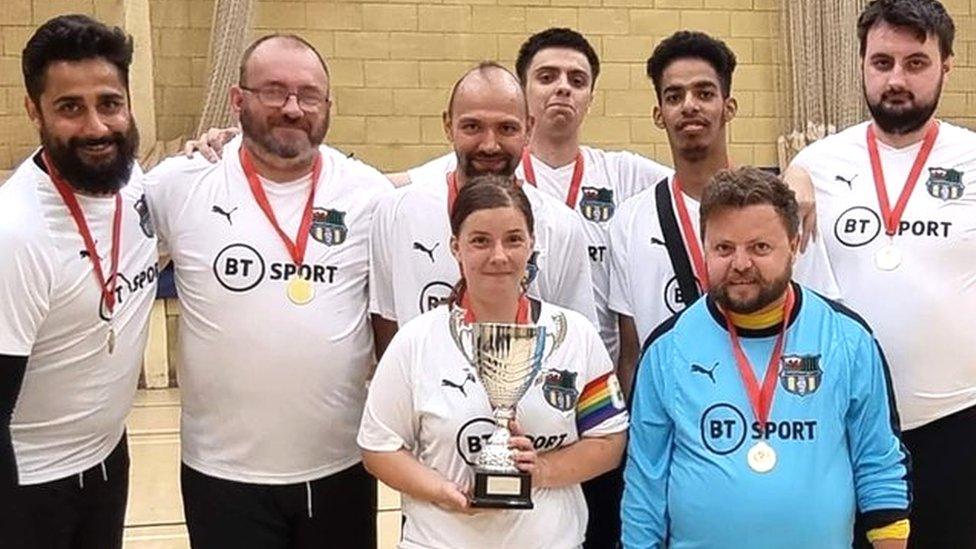
Bonnie (holding the trophy) previously represented Wales in the 2019 Homeless World Cup
"Regardless of mental health, we feel safe and secure and we can talk about it when the time is right."
In 2015, Ms Jewell battled depression and suicidal thoughts.
However, she said: "Since being involved with football, it has made me feel safe and secure, like I'm not being judged, it's all support.
"That's what made me feel like, right I feel safe and supported by an organisation, I want my team to feel the same."
In September, Aberystwyth Exiles hosted Jumpers for Goalposts, another mental health team from Ceredigion.
Alex Truss, 38, who has lost four stone since joining the team, said: "I have suffered with my mental health since I was a teenager, and when my marriage ended suddenly, playing football was the only thing that got me out of the house.
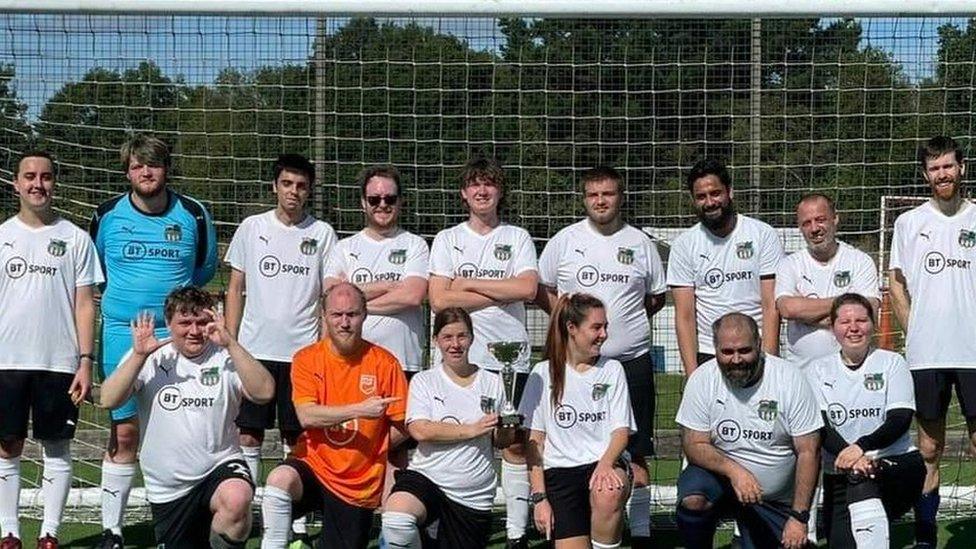
Aberystwyth Exiles' team to play Jumpers for Goalposts in September
"Mentally I can't begin to say how much it has helped, football was the only thing that kept me on track. I couldn't miss it."
Hayley Jarvis, head of physical activity for charity Mind, said there is good evidence that more physical activity can have benefits for mental wellbeing.
She said that sport-based support groups "focus on bringing together people with shared experiences to support each other" and provide a space where people "feel accepted and understood".

LOOKING FOR A NEW PODCAST?: The Emiliano Sala Story
INJUSTICE OF A HANGED MAN: The shocking execution of Mahmood Mattan

Related topics
- Published22 June 2022
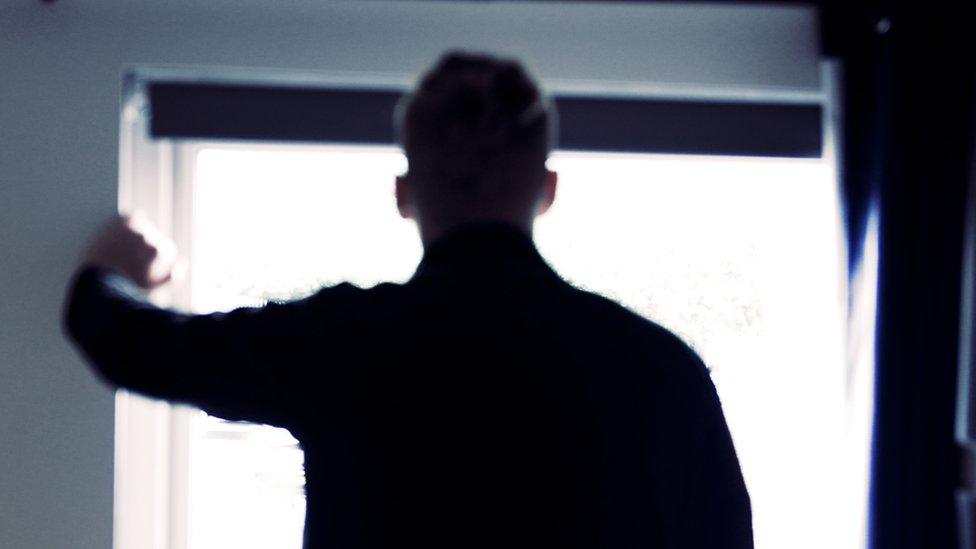
- Published18 September 2022
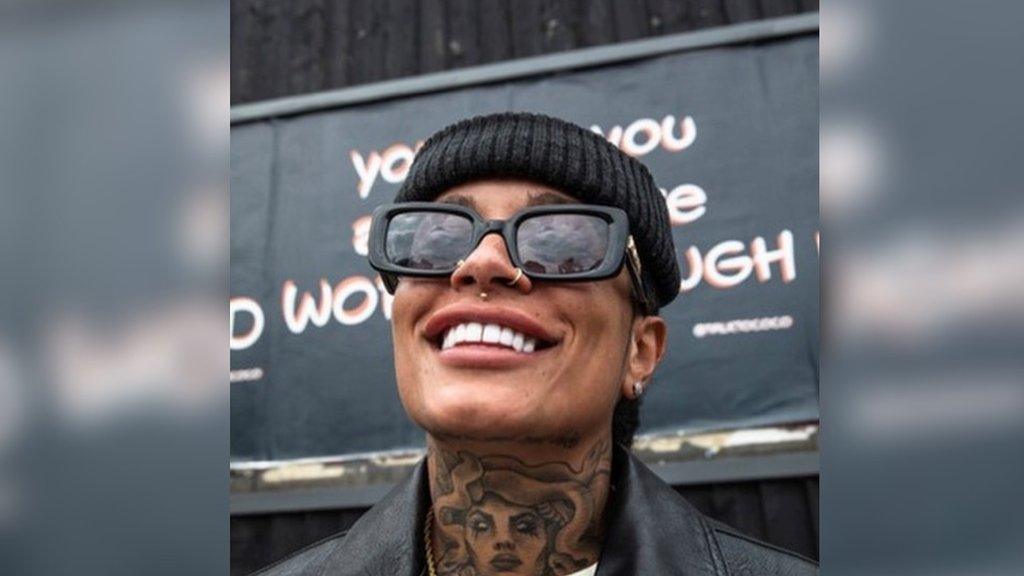
- Published1 October 2022
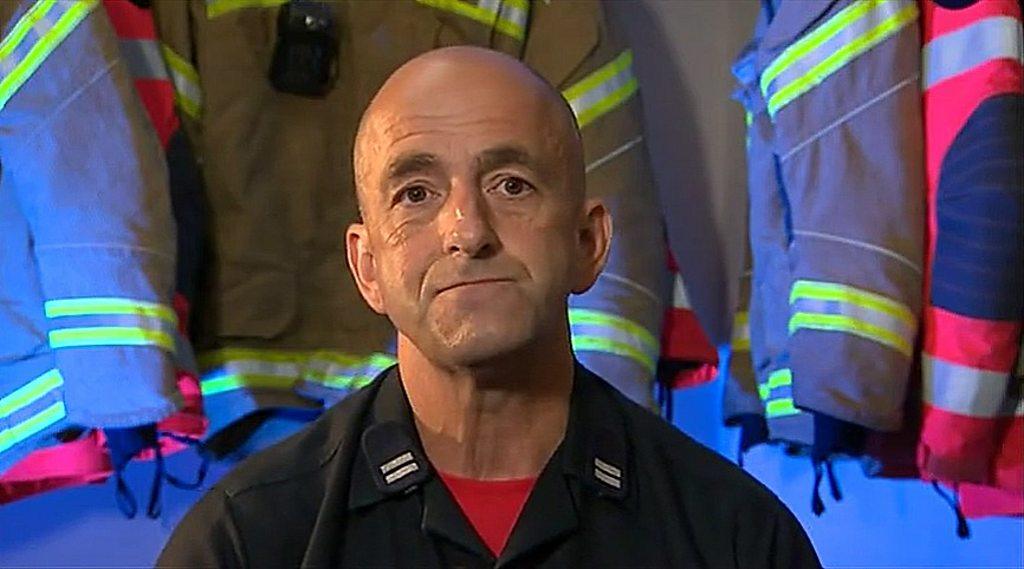
- Published1 October 2022
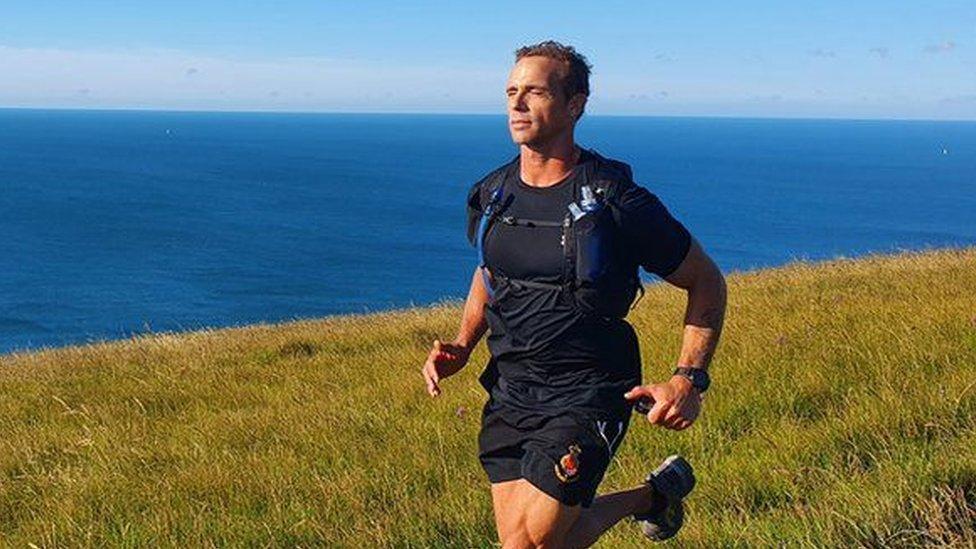
- Published29 September 2022
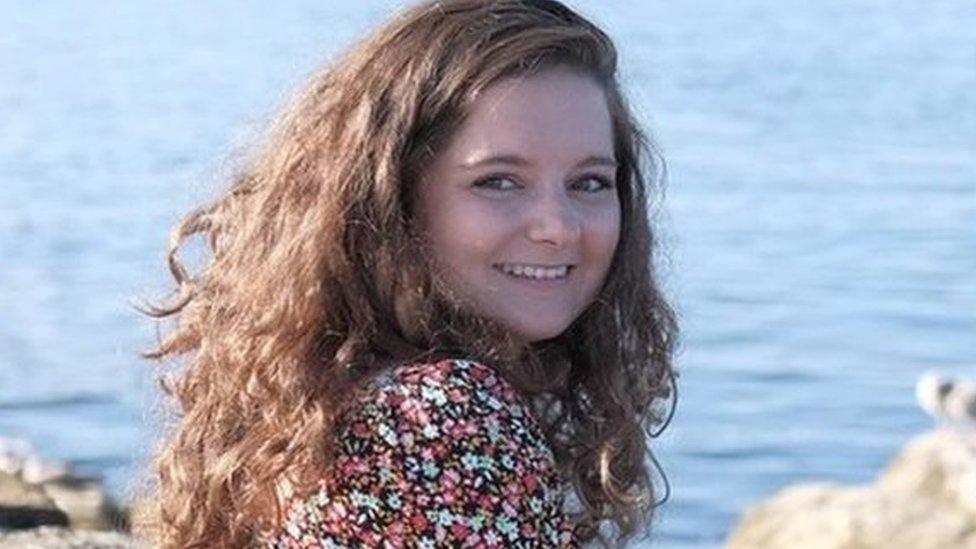
- Attribution
- Published14 May 2019
